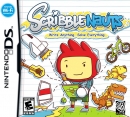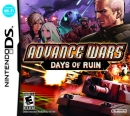EDGE: Who did you have in your mind when you created Wii Music?
MIYAMOTO: When I’m making something I think in terms of my own family, and always imagine how my entire family can enjoy it together. I think a very large audience can enjoy Wii Music. As a matter of fact, when we asked people to do hands-on demos, many of them took to it. High-school students who performed in their own band enjoyed it, and even middle-aged men who have never touched a musical instrument before were excited to play together.
Those that are good at playing musical instruments can play with those that can’t. I really don’t know who are actually going to purchase the game, but I hope that schoolchildren will play. Children get access to music education by first being taught basic theory and then playing musical instruments, but that is really not easy. The primary purpose of letting children learn theory and play instruments is for them to be able to learn the joy of music and how to express themselves through it.
I think Wii Music approaches it completely differently from the school curriculum – you don’t need to learn the difficult theory or master the different instruments, but you will get access to the immediate joy of music itself. I want many small children to get access to Wii Music.
Wii Fit and Wii Music are both linked to your personal interests – did they share a similar creative process?
The creative process of Wii Music was actually very different. I saw what was fun about raising a dog and created Nintendogs. With Wii Fit I started weighing myself every day in the hope of becoming more healthy and I found something that was fun and interesting in that and turned it into a videogame.
Rather than finding an impetus in something and turning it into a videogame, Wii Music has been an answer to my long life as a struggling musician. I’ve played instruments and been a fan of music for many, many years. The one problem I’ve never been able to resolve is that while I wish I was good enough to perform for people, no matter how much I practiced I still feel that my instrument performance is not very good. It feels to me like I’ve spent the last 30 years trying to become a musician and finally, with Wii Music, I’ve created an instrument that allows me to have that experience. It’s almost the answer to a long-standing problem that I’ve been faced with.
Other music games including Rhythm Tengoku, Guitar Hero and Rock Band have had great success all over the world – did their success confirm to you that there was a strong market for music games?
Actually, I did not think about other music software at all when we were developing Wii Music. The reason why we started the project was due to the original concept of Wii itself. We wanted Wii to become the machine that would be located in the family living room where families would be together and enjoy using it. So music was something we wanted to work on.
Simultaneously, I have been playing instruments myself. For many years I have been thinking that I really wanted to make software with which people could enjoy playing with musical instruments. And then, when we had the opportunity to work with the Wii Remote’s brand-new interface, it gave me the inspiration that finally we could take advantage of it to mimic the play style of music instruments. So that’s the background.
When it comes to the existence of other music software, maybe I should say I wish for the success of other music software, but Nintendo and I myself really don’t like to be compared to something already exists in the market. We really want to try to be different from the others [laughs].
I don’t like it when someone asks me whether it’s due to the popularity of other music software that I wanted to make music software. If it wasn’t for the success of other software people wouldn’t ask! [Laughs]
Wii Music encourages players to be creative, like many other games being made right now. Why is that?
I’m often asked the reason why my games are fun to so many people, so I often thought about that and came to think about it in this fashion: when gameplayers find some creative aspect to a game it can become fun.
Videogames are a unique form of entertainment called interactive entertainment. Players are given the opportunity to make their own decisions and plans, and that’s how this interactive nature can generate circumstances in which players can become creative. I think that’s one of the most appealing points of videogames.
When it comes to the creativity of drawing pictures, playing with music instruments – these aren’t easy for the great majority of us, but that doesn’t mean that people don’t like to draw pictures or make music. Simply because it is not easy means that people are hesitant to try to understand the joy in making pictures or music. I think our job is to support them by getting rid of the difficulty of them and getting to the pure fun nature of these activities.
But I have been trying to include this kind of nature for players to be creative all the time – when I look back over the Legend Of Zelda series, it often included it. When it comes to the general trend in the videogame industry, though, I’m sorry, I don’t have the answer!
You mentioned people’s fear of mistakes – in many aspects of Wii Fit and Wii in general it looks like you’ve been looking more towards people’s behaviour than ever before. Do you ever feel that you’re acting more as a behavioural psychologist than a game designer?
I really don’t think I’ve changed in my attitude to making videogames at all. It’s just that the possibility of videogames has been expanding due to emerging technologies. What I have been doing is rather simple. I try to use anything around me that’s available to give a pleasant surprise to people. And doing that is my joy. I think entertainment is nothing more than that.
We want to entertain people by surprising them, so I really don’t think we are psychologists – we are nothing but entertainers. Having said that, however, we have to understand how we are going to surprise people. My way of surprising people is often to give them some clue or trigger so that they are going to discover inside of themselves some hidden ability or interest, or something that they already have but did not realise. In order to do so I am actually making a point of thinking what people are thinking, and how they are thinking, what kind of experiences they are having. If you call that psychological, then… [Shrugs]
You also said how you hoped that Wii Music could be used among children to promote making music in a way that the curriculum can’t. Do you think it’s a role of games to educate as well as entertain?
I think I need to come up with very fine and delicate wording about the educational ability of entertainment [laughs] but, frankly speaking, I have never intended to make educational software. But I think it’s wrong to completely build a wall between the two.
I really don’t think that education and entertainment are two different things. For example, people might say that Brain Training is good because it is educational, but I really don’t think that people only play Brain Training for that purpose. Rather, Brain Training became popular because they enjoy themselves seeing how they are progressing and how their hidden talents are revealed by their scores.
When it comes to Wii Music, I simply thought it was great fun to be able to play with a musical instrument. But, for that matter, I have never thought that education couldn’t be entertaining. I wish that the education I received during my schooldays could have been much more fun than it was. From that perspective, I’m trying to expand the fun nature of things.
Once again, I am not intending to make anything educational, but if the resulting software is taken as educational, that’s OK. I might seem to be making some unwritten proposal to the teachers around the world – but it depends on the people in the academic field whether or not they will make use of that.
What’s your response to some of the poor reviews Wii Music has received in the gaming press? Did you expect it to be misunderstood?
Well, we have just come to the stage where some people have played Wii Music for the first time, and in most cases they are still playing by themselves, but I think there is more to playing games than just playing by yourself. Playing a challenging game by yourself is of course a really important aspect of videogames, but in most videogames there are other aspects, like how you will associate or compare with other players.
My hope is of course that a gradually increasing number of people will get access to Wii Music and understand its fun nature. I really don’t think that it will have the immediate and universal appeal around the world at all [laughs].
I really appreciate that the gaming media has a different view of anything as new as Wii Music today – it’s simply symbolises how different and unique Wii Music is. To tell the truth, I have this big ambition for Wii Music, that it can eventually be something very influential so that it might be able to influence what music means in the world.
Is it true that Wii Music is the last of the games from your original list of ideas for Wii software?
[Laughs] Yes, it is true that the existing Wii games, including Wii Music, were on the top priority list, but there is some other software, of course [laughs], but I cannot talk about it!
You’ve covered sports, fitness and now music, all universally appealing subjects. Is it becoming more of a challenge to find new universal themes?
[Considers for a long time] Well, yes, it is challenging to find something universal but, after all, that’s my job as I see it. Until the time that I am in a position to tell you the next subject, we can only confirm that we are working on the next Mario and the next Zelda, etc.
In terms of new games, we need to stand with the potential customer’s viewpoint. Of course, we have new ideas in mind all the time, but the challenging part is whether they will really be widely appreciated by users.
Is it more difficult to develop games like Wii Music or Wii Fit than a more traditional game like Mario or Zelda?
In the case of Zelda or Mario, as a principle we make a point of using new technology that can create unique new features for them. In the case of finding a brand-new theme that is not traditionally categorised as a game theme, like Nintendogs or Wii Fit, we of course have to think about what is going to be appealing to the wider audiences.
Sometimes new technology emerges that makes us realise that we can tackle a new theme, but as far as my talent goes, it’s always the same. What I really try to do all the time is provide customers with something brand new – some new gaming experience. I think it’s simply the difference of the focus – am I focusing on technology or on theme? The natural challenge is always the same. As far as my attitude goes, the key point is whether I am enjoying doing what I’m doing or not.
That is important – after all, creating something is always a hardship, but, equalling the hardship, if I have the belief I am trying to create something new, that can give me the hope as well as the joy.
Nintendo is still quite conservative with its use of the internet, but do you think that you’re learning more about how to safely implement it in your games?
That’s right, Nintendo has been very careful. Whenever we take advantage of the internet, we want the highest possible safety and security for our users all the time.
We have been trying various methods. To take an example from Wii Music, we understand that it would be fun if players get the opportunity to share their performances. Maybe it’s something like what we’ve been achieving with the Mii Contest Channel – it’s one thing that you can come up with some great new character, but it’s adding up to far more entertainment if you can compare your Mii with those from around the world.
There are some great possibilities, I believe, with viewing and sharing user-generated content. But, once again, we need to make the appropriate balance. So our challenge continues.
How difficult is it to take consumers who begin gaming through software like Wii Sports and Wii Music and take them into more sophisticated games? And do you think that’s a very important step for Nintendo nowadays?
I think first of all we have to continue to create these new types of games that are going to interest people who otherwise aren’t going to be interested in games. That’s the first step.
In terms of where we go from there, one theory is that you take those people and transition them to the types of game experiences we have all been enjoying for the last 30 years. While there’s certainly value in trying to do that, the thing I think is more important is that entertainment itself is something you need to continue to surprise people with.
The question then is what can we ourselves, or other game creators, do to make new game experiences that are unique, that will continue to surprise wide audiences of people, whether it’s people who have been playing games for a long time, people who are new to games or people who have yet to play games.
I think that what we’ve begun to see with Wii is people have begun to understand videogames, and hopefully they’re understanding that anyone can play videogames. While I’m sure some people will transition over to the types of games we’ve all played for so long, I’m more excited about what Nintendo and all of the developers can do to continue to surprise this now much larger audience.
Do you think we will still be using the Wii Remote and Nunchuk in ten years? Do you hope they’ll become some kind of standard that will replace joypads?
One of the challenges we’ve seen with the videogame industry is that we’ve come so far with what is now considered the classic videogame controller, when you’re so used to using the same thing over and over again over many years, as a creator you run into creative blocks where it’s hard to break out of that mould and come up with new ideas.
Of course, if I were to say that we were going to change the interface right away in the next generation, the people who have been learning to work with these controllers would be upset. But I would think that somewhere down the road you might find a way to make an even more intuitive type of interface that might make it even easier for people to interact with videogames.
I think that at some point in the future we’ll probably see some type of change.
Beyond Wii MotionPlus?
That’s a good example of how we make improvements of what has become the standard controller and we’ll see that evolve and, again, we’ll likely come to a point where people might run into those creative blocks after they’ve explored all of the opportunities for that controller. And then we’ll move on to another new and different type of controller.
When you one day retire, what do you want to be remembered for?
I often look at the pattern that we’ve seen with the Japanese manga industry and hope that I can have something like that.
If you look at the history of Japanese manga you have the very early manga artists like Osamu Tezuka, who really defined the style and continued to pioneer in that realm and draw new manga and created new styles along the way. I think the other key thing about them is that they continued drawing up until the day they died.
I would be happiest if people look back some day and say this is somebody who was there when videogames first started being created and he’s somebody who was continually creating new styles of play and was bringing new ideas to games and was a pioneer up until his dying day.
Existing User Log In
New User Registration
Register for a free account to gain full access to the VGChartz Network and join our thriving community.



























































